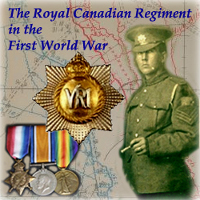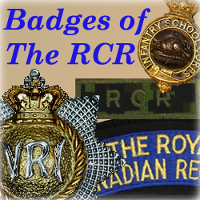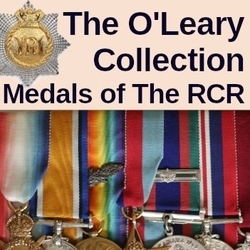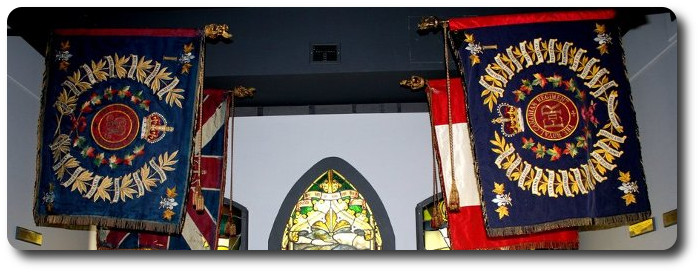
Researching The Royal Canadian Regiment
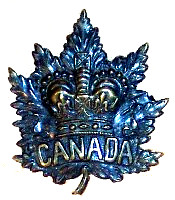
Badge worn by the Second (Special Service) Battalion of The Royal Canadian Regiment while serving in the South African War; 1899-1900.
"The Three Musketeers of Kroonstad"
By Capt. A. S. McCormick (2nd Battalion)
The Connecting File, Volume V, No. 4; December 1926
The scene is Kroonstad, Orange Free State.
Time – June, 1900.
The Provisional Battalion, composed of men who had been left ill or wounded in Bloemfontein, has been shifted here and there on many duties. No.4 Co., composed of 40 men, 2nd Batt., Cornwalls, 25 men 1st Batt., Gordons, 17 men 2nd Batt., R.C.R., is stationed across the Vaal River from the town.
The menus have become monotonous; they do that sometimes in the Army, you know. Three brilliant members conceive a clever idea. At dusk Corporal A. S. McCormick of E Co., in command of the 17 Canucks, Lance Corporal McDonald of H Co., and Pte. G. W. Woodliffe of B Co. leave the camp separately and meet in town. They proceed to the other side of Kroonstad to the neighborhood of a large supply park, then descend into a long ditch 15 feet deep by 20 wide and make their way along it to the point nearest the park. The Lance Corporal remains in the ditch, the Corporal mounts guard above and the private "gets lost" and must inquire from every sentry how to reach the 3rd (Militia) Battalion of the East Kent Regt. (The "Buffs").
Having now learned the weak points of the defence he makes his way through the lines, seizes a large box and returns hastily and panting to the listening post. The box is relayed but is so heavy and the banks so slippery that men and loot slide and tumble to the bottom of the ditch. A cautiously lit match discloses the label "army biscuits," the last thing anyone would take the trouble to commandeer for a change of menu. The Corporal says; "Oh, hell": the Private says; "God damned old biscuits": and clambers up the bank laughing but with blood in his eye. The second raid is more successful: for the prize is a box of 24 two-pound tins of Bruce's Army and Navy Rations.
The desired objective having been attained, the party must now regain its own lines. The Corporal walks along the top of the bank. The others slosh, splosh, squash in the mud and slime of the ditch till far enough away to ascend without being seen. The Corporal now marches his "fatigue party" through the streets. When anyone approaches, the three members I express in very vicious language their opinions of anyone who sends a fatigue party out at that hour of the night.
The Corporal is willing to bear a share of the burden but must not degrade the sacred rank by soiling his hands in any menial task. At the square a halt is called for rest. Through the darkness looms a figure with slow and measured tread that reminds nervous (perhaps guilty) minds of a policeman. The tired feeling is forgotten, the men are on their marks: they get set and all records for the quarter-mile are about to be broken. If there be "any pursuit, the motto of the three musketeers is; "They shall not pass." The figure is discovered in time to be a Kaffir policeman, who peers into each face and strolls on in dignified silence and tactful majesty.
The party resumes the journey, crosses the river by way of the rocks below the dam and arrives in the sleeping camp. One night owl of the Gordons sticks his head out of his two blanket tent. The private beckons, the owl approaches and the Lance Corporal shoves two tins into his hands.
"Och," says the Gordon which, translated into English, means; "Thank you, mum's the word."
A good and honorable deed accomplished with bravery and with honour to the noble traditions of the Royal Canadian Regiment, the fatigue party puts the proceeds of the expedition into storage and sleeps through the rest of the night like innocent children.
And as long as the special grub lasted they lived happily ever after.
